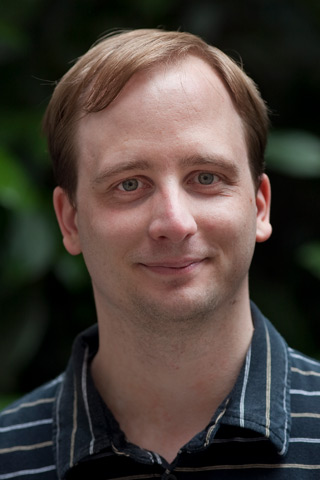Welcome to our feature A word from the expert. In this feature, we introduce someone who has organized a conference in our region or will do so in the future. This month, it is our pleasure to introduce dr. Mark Winands, Associate Professor at the Department of Data Science & Knowledge Engineering, Maastricht University.
1. Why did you choose your specialism?
In secondary school, the profile I chose included scientific subjects like Mathematics and Physics. I studied Knowledge Engineering at Maastricht University, because I was particularly interested in the combination of Mathematics and Physics. During my study and graduation I was drawn to the subject of intelligent search techniques as an important aspect of strategic thinking. The areas of application are very diverse, but the classic testing domain is games. These offer a challenging environment to test and compare methods for artificial intelligence, as they contain several dynamic elements of decision making that can be found in real life.
I did my PhD research about this subject with the department of computer science. After receiving my PhD I worked with the CBS in Heerlen and the University of Reykjavik before returning to Maastricht as researcher and professor. Right now I am program director for Artificial Intelligence, Data Science for Decision Making, and Data Science and Knowledge Engineering.
2. Which conference have you managed to acquire for the Maastricht Region?
The IEEE Conference on Computational Intelligence and Games (CIG 2018), which will take place from the 14th until the 17th of August 2018. It is the first time that this annual congress (since 2005) will take place in the Netherlands. IEEE CIG is one of the leading international conferences in this discipline. 150 prominent researchers and developers from the academia and gaming industry all over the world get together to discuss the recent developments and future directions in this field.
The opening keynote will be held by Julian Schrittwieser, one of the great minds behind Alpha Zero. This system taught itself to play Chess and Go within a few hours and surpassed human players far beyond that of the strongest professional. This achievement that put Julian Schrittwieser on the Forbes list of 30 Under 30 Technology.
3. Which were the competitive cities and what was the decisive reason to choose for Maastricht?
Usually there are 2 or 3 other competing cities. In the previous bid in 2014, we bid against Warschau and Santorini. In this new bid, Maastricht was selected because it is a historical city with a rich cultural heritage. The selection committee was impressed by the beautiful location for the CIG Conference, with excellent congress facilities in and around the University. The wide variety of hotels and affordable accommodations in the vicinity of the congress location were another positive deciding factor. Finally, the central location of Maastricht in Europe and the easy accessibility by car, train or airplane sealed the deal.
4. In your opinion, what is the development perspective for the region?
The south of Limburg is the gateway to Europe. This is a fact that the rest of the Netherlands need to recognise as a strategic opportunity and invest in offices and dependences to join the European technological developments.
5. What does the Maastricht Convention Bureau mean to you?
The Maastricht Convention Bureau has been crucial in securing the bid. They have provided excellent material in the bidbook and images. They also provided assistance in organising hotels, restaurants, reception and other social activities that were greatly appreciated. I have also noticed that several of my colleagues are now more confident to organise a congress with the help of the MCB as a full service provider with access to the right networks in the region.

